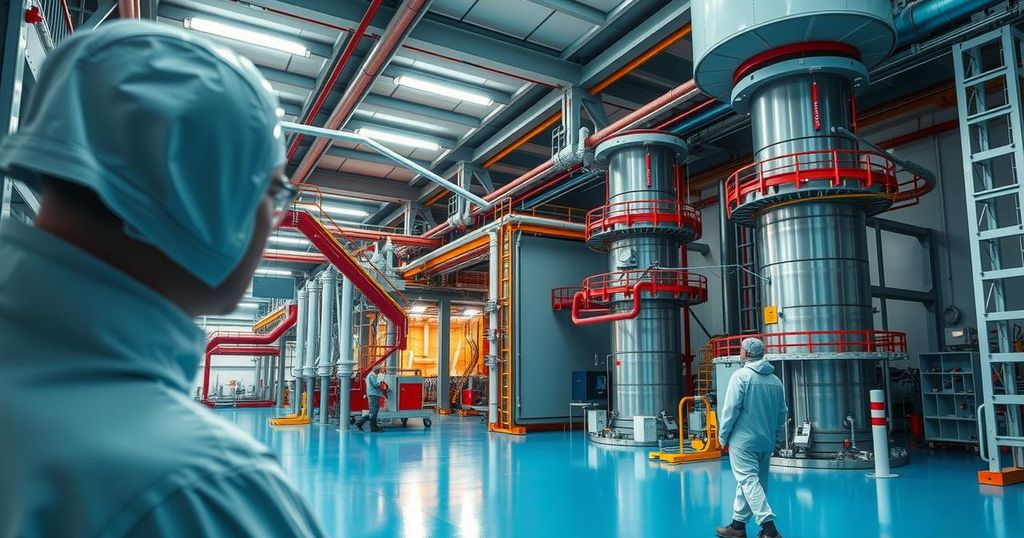Global news
ASIA, BAHRAIN, BBC, BBC IRAN, GAZA, GAZA STRIP, GROSSI, IAEA, INTERNATIONAL ATOMIC ENERGY AGENCY, INTERNATIONAL INSTITUTE FOR STRATEGIC STUDIES, INTERNATIONAL RELATIONS, IRAN, LEBANON, MIDDLE EAST, NORTH AMERICA, NUCLEAR POLICY, NUCLEAR WEAPONS, PAKISTAN, RAFAEL GROSSI, SANCTIONS, SYRIA, UN, UNITED STATES, US-IRAN RELATIONS
Isaac Bennett
0 Comments
IAEA Head Raises Alarm Over Iran’s Accelerated Uranium Enrichment
Rafael Grossi, head of the IAEA, voiced serious concerns regarding Iran’s increase in uranium enrichment to 60%, suggesting potential military implications. While some Iranian political factions advocate for nuclear weapons, leadership appears hesitant to pursue this path. Grossi cautioned Israel against military strikes, indicating severe consequences, and highlighted rising global nuclear proliferation discussions.
The head of the International Atomic Energy Agency (IAEA), Rafael Grossi, expressed his deep concerns regarding Iran’s recent decision to significantly augment its production of highly enriched uranium, now reaching levels of 60% purity, close to that required for weaponization. This escalation is viewed by observers in the region as a potential reaction to Iran’s military and diplomatic challenges. While some factions within Iranian politics advocate for nuclear weapon development, Grossi indicated that current leadership appears not inclined towards pursuing that path. He emphasized during the Manama Dialogue in Bahrain that Israel must refrain from military actions against Iranian nuclear facilities, warning of dire consequences, including potential radiation risks. Grossi’s report to IAEA governors confirmed that Iran has accelerated its uranium enrichment at the Fordow facility and highlighted alarms surrounding nuclear proliferation as more nations contemplate acquiring nuclear capabilities.
The international community, particularly the IAEA, is closely monitoring Iran’s nuclear program due to longstanding concerns about its potential military dimensions. Iran has been engaging in uranium enrichment activities under scrutiny following the Joint Comprehensive Plan of Action (JCPOA) agreements. Recent geopolitical tensions, particularly in the Middle East and a stalemate in nuclear negotiations with European powers, have intensified discussions about Iran’s intentions and capabilities, particularly amidst sanctions and military pressures in the region.
In summary, the IAEA’s observations underscore a troubling trend in Iran’s nuclear activities that could jeopardize regional stability and non-proliferation efforts. While the Iranian leadership may not currently endorse a nuclear weapons program, the increasing enrichment levels and calls from political factions within the country raise significant concerns. Furthermore, Grossi’s warnings regarding potential Israeli military action highlight the complexities and risks associated with Iran’s nuclear developments, emphasizing the urgent need for diplomatic engagement and strategic oversight.
Original Source: www.bbc.com




Post Comment